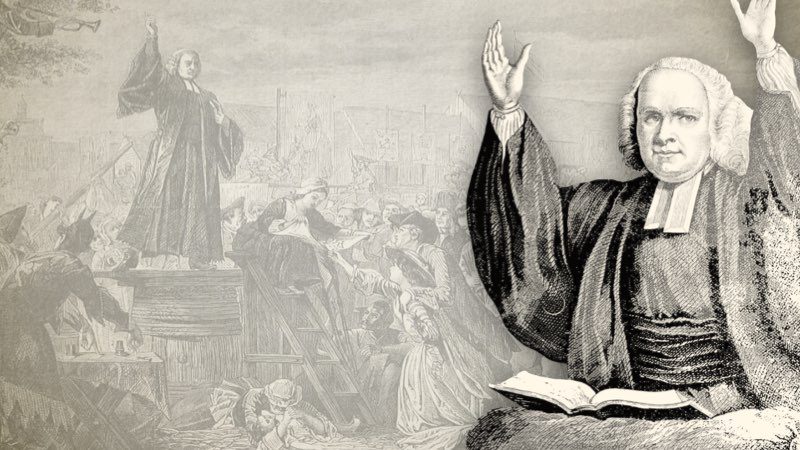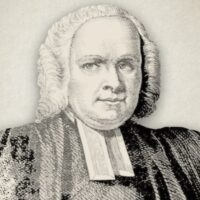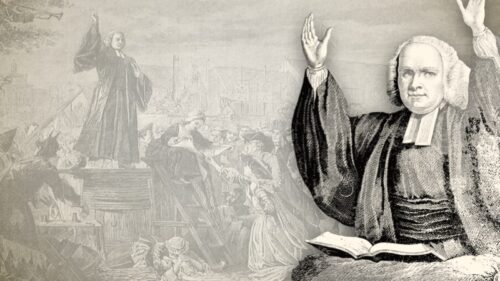
The Life And Testimony Of George Whitefield
John E. Hazelton, Hold Fast:
George Whitefield (1714-1770) comes first as the preacher of his day. At Pembroke College, Oxford, he was already under serious impressions when he joined the little society of students who met to study the Scriptures, to converse, and to pray. Their favourite books were “The Imitation of Christ,” and Law’s “Serious Call.” These only led him into mental confusion, till at length, after seven weeks of illness caused by soul-trouble and austerities, God removed the heavy load, and enabled him, as he describes, “to lay hold on His dear Son by a living faith,” and gave “the spirit of adoption to seal me, as I humbly hope, to the day of redemption. At first my joys were like a spring tide, which, as it were, overflowed its banks.” He was ordained deacon in Gloucester Cathedral, and then commenced that ministry in Great Britain and America which the Lord so owned and blest. His great aim was to set before his vast audiences—chiefly in the open air—their perishing state as sinners, to proclaim free grace through the blood and righteousness of Christ, and to insist upon the necessity, and unfold the nature, of the new birth, whereby they became partakers of this salvation. This was the burden of the most God-honoured evangelistic preaching England has ever known. No popular religious songs; no outward attractions; no carnal expedients; but the testimony of a man who had a deep and daily experience of sin and salvation, and who, with mighty power and eloquence, and by a voice that was most exquisitely modulated, but so clear that it could be heard at a distance of a mile, attracted alike the lowest and highest grades of society. Humble as a little child he remained until the last, and eternity alone will reveal the blessed harvest of souls given to him by his God. On one occasion, after preaching in Moorfields, he received, according to his own testimony, “at a moderate computation, a thousand notes from persons under conviction.” John Newton frequently heard him, and speaking from personal knowledge, said, in a funeral sermon preached at his death from John 5:35: “It seemed as if he never preached in vain. Nor was he an awakening preacher only. Wherever he came, if he preached but a single discourse, he usually brought a season of refreshment and revival with him to those who had already received the truth.” Cowper writes of him as Leuconomus, the Greek name for Whitefield, and says that he:—
“Stood pilloried on infamy’s high stage,
And bore the pelting scorn of half an age;
The very butt of slander, and the blot
For every dart that malice ever shot,
The man that mentioned him at once dismissed
All mercy from his lips, and sneered and hissed.”
Such has ever been the portion of those who have faithfully proclaimed the everlasting Gospel, but it matters not, for God will vindicate them in His own time.”
George Whitefield (1714-1770) was a sovereign grace preacher. Having been prohibited by the clergy from preaching in the chapels, he proclaimed the gospel in the open fields, attracting large congregations. As this venue for gospel ministry was unknown at the time, Whitefield suffered much opposition from the established churches. Nevertheless, his gospel labours were blessed of the Lord and he forged many friendships, including those of Particular Baptist ministers.




